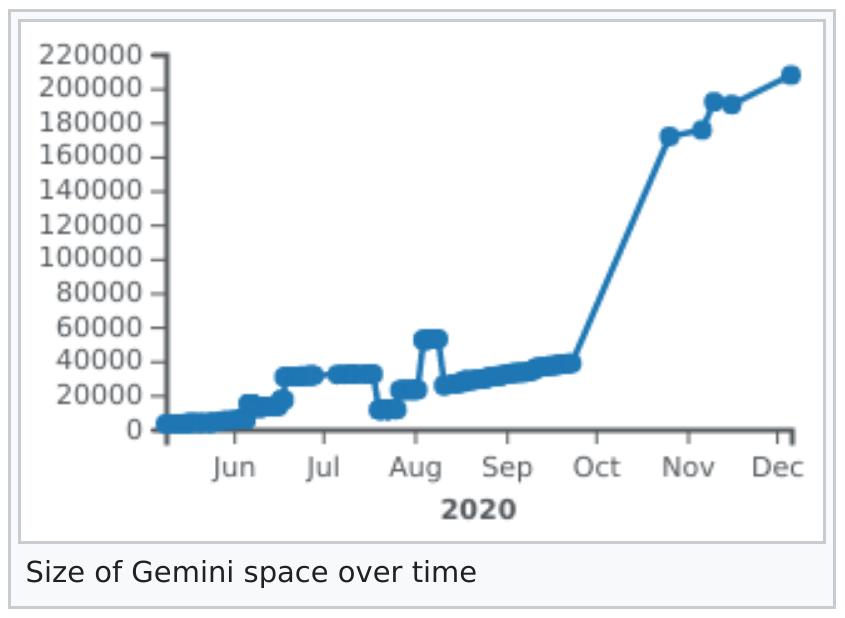
 Source: Wikipedia
Source: Wikipedia
Today, in 2021 (COVID-19+2), gopher:// links -- or the source of inspiration for gemini:// links/protocol -- have long been unsupported by all the major browsers, including Firefox (for over a decade now; the comments here are certainly interesting as they aged well; it's quite illuminating what Brendan Eich wrote back then). Mozilla is funded by Google, a company that does not wish to see the carpet pulled from under its feet (e.g. large-scale shift to IPFS or Gemini, even if partial), so the journey towards widespread Gopher adoption may seem long. It's not unattainable, it may never replace the Web (it doesn't strive to, either), but it can be complementary. To read the news, for example, there's almost never a reason to run any JavaScript or use forms to submit things, log in etc.
"We'd love to promote Gemini at least once a week if not on a daily basis (the latter frequency is unlikely to be sustainable) because from a tech-rights point of view Gemini has a lot to offer."In the first 24 hours since our capsule's launch we saw a relatively high level of traffic (much higher than we expected or hoped for, knowing that access would require downloading a browser/client just for that purpose).
We're continuing to make improvements and updates are now largely automated (to keep our capsule synchronised with the latest stories, originally published as HTML and RSS/XML).
Earlier today we saw Techrights already showing up among Gemini search results (yes, there are search engines there and also at least 3 Web proxies, such as this one or this one).
We'd love to promote Gemini at least once a week if not on a daily basis (the latter frequency is unlikely to be sustainable) because from a tech-rights point of view Gemini has a lot to offer. It's like the Web "done right"... without the bloat and the excess complexity. It's secure, it's suitable for mobile/small devices, it's working well in the terminal as well as in GUIs, and it's not in any way -- not even remotely -- controlled by corporations. ⬆